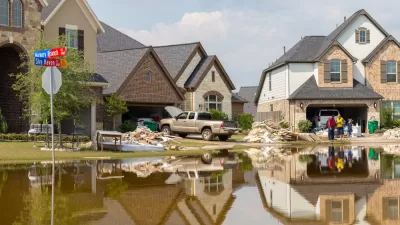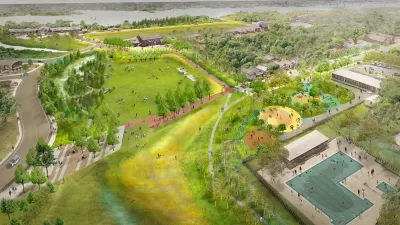The Rockefeller Foundation’s global initiative for urban resilience rounded out its membership this month with the addition of 37 cities.

At joint events in Nairobi and Washington, D.C., 100 Resilient Cities (100RC) announced that it accepted a final cohort of 37 cities into the program, which seeks to "shape the global urban resilience movement."
New members, which span five continents, include Jakarta, Buenos Aires, Toronto, and Tel Aviv.
A quarter of all participating cities are in the United States, including eight of the newest members.
100RC offers participating cities two-year grants to hire a chief resilience officer (CRO) for two years. CROs coordinate the development of a citywide Resilience Strategy—a framework for managing both disasters and long-term stresses, including the impacts of climate change and social and economic equity.
The program also provides $200 million in support services and functions as a peer-to-peer network, facilitating collaboration among cities.
San Francisco was the first to appoint a CRO, and more than 50 cities have followed suit. A dozen cities, including New Orleans, have completed their Resilience Strategies. More than 1,000 cities worldwide applied to join the network since it began in 2013.
FULL STORY: 100 Resilient Cities announces hundredth member, but 'work is only just beginning'

Maui's Vacation Rental Debate Turns Ugly
Verbal attacks, misinformation campaigns and fistfights plague a high-stakes debate to convert thousands of vacation rentals into long-term housing.

Planetizen Federal Action Tracker
A weekly monitor of how Trump’s orders and actions are impacting planners and planning in America.

In Urban Planning, AI Prompting Could be the New Design Thinking
Creativity has long been key to great urban design. What if we see AI as our new creative partner?

Cal Fire Chatbot Fails to Answer Basic Questions
An AI chatbot designed to provide information about wildfires can’t answer questions about evacuation orders, among other problems.

What Happens if Trump Kills Section 8?
The Trump admin aims to slash federal rental aid by nearly half and shift distribution to states. Experts warn this could spike homelessness and destabilize communities nationwide.

Sean Duffy Targets Rainbow Crosswalks in Road Safety Efforts
Despite evidence that colorful crosswalks actually improve intersection safety — and the lack of almost any crosswalks at all on the nation’s most dangerous arterial roads — U.S. Transportation Secretary Duffy is calling on states to remove them.
Urban Design for Planners 1: Software Tools
This six-course series explores essential urban design concepts using open source software and equips planners with the tools they need to participate fully in the urban design process.
Planning for Universal Design
Learn the tools for implementing Universal Design in planning regulations.
Appalachian Highlands Housing Partners
Gallatin County Department of Planning & Community Development
Heyer Gruel & Associates PA
Mpact (founded as Rail~Volution)
City of Camden Redevelopment Agency
City of Astoria
City of Portland
City of Laramie





























